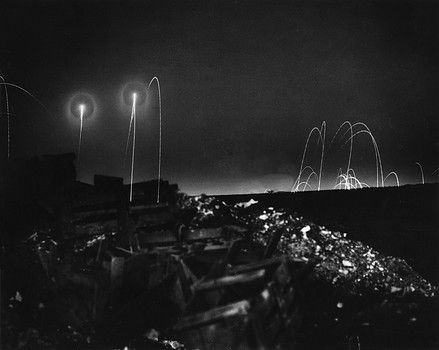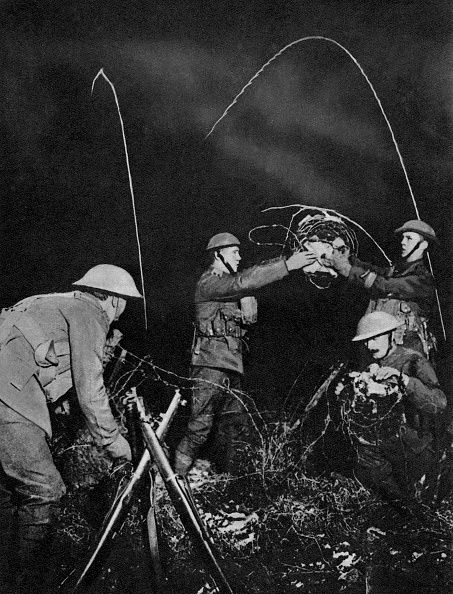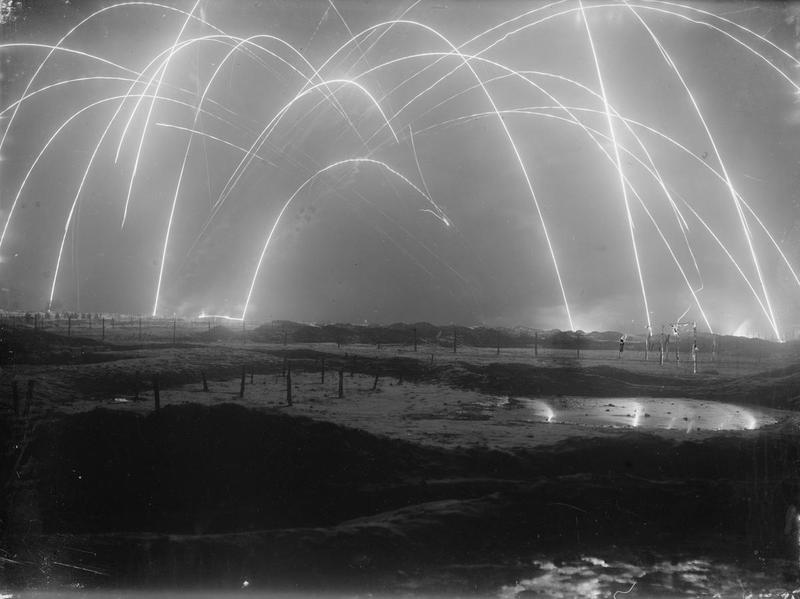Night Time in the Trenches

A typical night time routine was:
Stand To at Dusk - At dusk, all soldiers in the trenches repeated the 'Stand to' procedures. They fixed their bayonets, took up their positions and prepared for an enemy attack or raid.
Sentry Duty - Sentry duty was limited to no more than two hours at a time because there was a real chance that a man would fall asleep at his post.
After the "Stand to" the fortunate soldiers would try to get some rest, but sleep was never for long. Trenches could be busier at night than in the day because the enemy could not see the activity as easily. Some men would be sent to the rear to fetch rations, water, or other supplies or repair materials. Others would be put on sentry duty for two hour shifts. Falling asleep on duty was an extremely serious offence which could lead to harsh physical punishment or even death by firing-squad.

Patrolling, Listening Posts and Wiring Parties - After the sun set men would be sent out into No Mans Land on patrols, to man listening posts or to repair or put up more barbed wire. The listening posts were there to stop the enemy sneaking up on you. The wiring parties were sent out to repair or enhance the barbed wire defences in front of the trench. Night time work was nerve wracking. Every movement had to be as silent as possible. Many things could go wrong - and most of these would get you killed! If the enemy heard any unexpected noises - the hammering of new posts of barbed wire, the jingle or clank of equipment, a too loud voice - they would fire flares to light up No Mans Land, followed by artillery and machine gun fire. Anyone caught in the open would have to freeze because any motion would help the enemy spot them . Sometimes two patrols might collide and the soldiers would have a difficult choice- let each other pass by safely or fight hand-to-hand in silence.

James Stevenson Balfour, Letter http://www.canadianletters.ca/content/document-2859?position=4&list=2NxeDWi5dcWicFA2Flw5H4l8cklZfKgr0uo5Ek6TD4k
When it was getting dark we went up to our post, one on sentry, the other standing-to and one sleeping, 2 hrs, sentry, 2hrs. stand-to, 2 hrs. sleep, repeating this twice during the night. The post was close to a swell dug-out with stove & dandy spring bed, table & a chair. After it was light in the morning we went to a dug-out back of the firing line, where we made breakfast and then slept till noon, dinner and at 2 o'clock till 4 had a fatigue. We made several barbed wire entanglements, which are placed out in front of the trench. Between 4 & 5 p.m. We had supper and then went back to our night post.
It doesn't take long to get used to staying up all hours. Much different from when I got up at 4 or 5 a.m. at home. While in the trenches you never take off boots or any part of your clothes, keep on your skeleton equipment all the time, sleeping as well. That is pouches with 120 pounds of ammunition in fastened to a belt and shoulder straps, the bayonet hangs on the left side. To this equipment is attached water bottle, haversack, entrenching tool & kit bag when on the march.